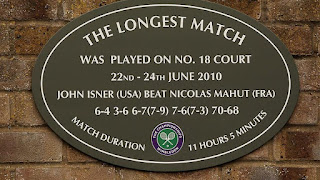1. Do not feel absolutely certain of anything.
NO TE SIENTAS ABSOLUTAMENTE SEGURO DE ALGO
2. Do not think it worth while to proceed by concealing evidence, for the evidence is sure to come to light.
NO PIENSES QUE VALE LA PENA OCULTAR LA EVIDENCIA, PORQUE ES SEGURO QUE LA EVIDENCIA APARECERÁ
3. Never try to discourage thinking for you are sure to succeed.
NUNCA INTENTES DISUADIR EL PENSAMIENTO PORQUE SEGURO QUE LO CONSEGUIRÁS
4. When you meet with opposition, even if it should be from your husband or your children, endeavor to overcome it by argument and not by authority, for a victory dependent upon authority is unreal and illusory.
CUANDO ENCUENTRES OPOSICIÓN, INCLUSO SI ES DE TU MARIDO O TUS HIJOS, TRATA DE SUPERARLA MEDIANTE ARGUMENTACIÓN Y NO POR AUTORIDAD, PORQUE CUALQUIER VICTORIA QUE DEPENDE DE LA AUTORIDAD ES IRREAL E ILUSORIA
5. Have no respect for the authority of others, for there are always contrary authorities to be found.
NO TENGAS RESPETO POR LA AUTORIDAD DE OTROS PORQUE SIEMPRE PUEDEN ENCONTRARSE AUTORIDADES CONTRARIAS
6. Do not use power to suppress opinions you think pernicious, for if you do the opinions will suppress you.
NO USES EL PODER PARA SUPRIMIR OPINIONES QUE CONSIDERES PERNICIOSAS, PORQUE SI LO HACES LAS OPINIONES TE SUPRIMIRÁN
7. Do not fear to be eccentric in opinion, for every opinion now accepted was once eccentric.
NO TEMAS SER EXCÉNTRICO EN TU OPINIÓN, PORQUE CUALQUIER OPINIÓN AHORA ACEPTADA FUE EXCÉNTRICA ALGUNA VEZ
8. Find more pleasure in intelligent dissent than in passive agreement, for, if you value intelligence as you should, the former implies a deeper agreement than the latter.
ENCUENTRA MAYOR PLACER EN EL DESACUERDO INTELIGENTE QUE EN EL ACUERDO PASIVO, SI VALORAS LA INTELIGENCIA COMO DEBES EL PRIMERO SUPONE UN ACUERDO MÁS PROFUNDO QUE EL ÚLTIMO
9. Be scrupulously truthful, even if the truth is inconvenient, for it is more inconvenient when you try to conceal it.
SE ESCRUPULOSAMENTE VERAZ, INCLUSO CUANDO LA VERDAD ES INCONVENIENTE, PORQUE ES MÁS INCONVENIENTE TRATAR DE OCULTARLA
10. Do not feel envious of the happiness of those who live in a fool's paradise, for only a fool will think that it is happiness."
NO ENVIDIES LA FELICIDAD DE LOS QUE VIVEN EN UN PARAÍSO SIN FUNDAMENTO, PORQUE SOLO ELLOS LO CONFUNDIRÁN CON LA FELICIDAD
B. RUSSELL
* Bertrand Russell, “A Liberal Decalogue,” The Autobiography of Bertrand Russell, 1944-1969, pp. 71-2
It is likely that i shall die before the issue is decided- I do not know wether my last words should be:
the bright day is done
and we are for the dark
or , as sometimes i allow myself to hope,
The world's great age begins anew,
the golden years return...
Heaven smiles, and faiths and empires gleam,
like wrecks of a dissolving dream
I have done what i could to add my small weight in an attempt to tip the balance on the side of hope, but it has been a punny effort against vast forces
May others succeed where my generation failed




























